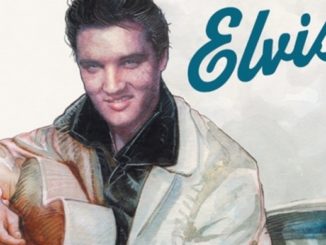
In this chronological autobiography, Sir Cliff positively reflects over his life (80 years) and music career (over 60 years) stating that except for the “sex allegations” made against him, his “life has been a dream!” Throughout The Dreamer, Cliff discusses three things which have shaped his life: his music; religion and politics.
With a career spanning over six decades, music was always going to be the book’s main theme. Whilst music had always been with him (his father played banjo in a local jazz band); a music career was not pre-destined for Cliff despite singing in the school choir. To this day, Cliff cannot discern how well he sang amongst this ensemble of his school peers. Furthermore, Cliff had no formal guitar lessons.
Cliff recalls with great emotion how he recorded his first LP a week following the plane crash that killed American musicians Buddy Holly, The Big Bopper and Ritchie Valens and his first number one LP, 21 Today, in 1961 (he would not get another number one LP until 1993 with The Album). Along with discussing his reservations about the initial take of “Living Doll” which he describes as “a weak pseudo-rock song”; Cliff reveals how guitarist Hank Marvin was the first brit to receive an imported Stratocaster from America and how this would change their bands’ sound and influence guitarists including Eric Clapton, Mark Knopfler and Chris Rea.
Along with quoting the encouraging words John Lennon said about him “Before Cliff and “Move It”, there was nothing worth listening to in British music”; Richard also recalled recording his first gospel LP Good News at Abbey Road the same time in next studio to the Beatles who were “recording their Magical Mystery Tour EP” in 1967. Seven years later Cliff would make his first song in falsetto: “Devil Woman”.
Cliff expands upon his own personal music tastes pronouncing the Bee Gees as his favourite band and that he was not a fan of punk. Cliff also says that he was offered to make “What’s Love Got to Do with It” before Tina Turner stating that someone in his office without his knowledge replied saying it’s not “quite right for Cliff!” Cliff also mentions how he did not take up the opportunity to meet his music hero Elvis in 1976 because “he (Elvis) was not looking good then” and didn’t want “me (Cliff) and a fat Elvis on my fridge magnet!”
Richard elaborates on his lack of success in the USA and how he could not fill a venue of 15,000 as the main act. Morrissey approached cliff to open for him in New York. Cliff agreed, but the show was cancelled owing to Morrissey having a health complaint. Nonetheless, Cliff expresses relief that he didn’t break America because he can go around the USA without being noticed. Cliff also describes the lack of airplay of his music releases over the last three decades. In 1998, he sent his single “Can’t Keep This Feeling In” to a “black soul music radio station” saying it was by a new artist called “Blacknight 001” which made it into this radio stations’ (which Cliff does not name) chart.
Following his fathers’ death in 1961, Cliff began to embrace religion and could have gone down either one of two paths: become a Jehovah’s Witness (as his mother and some of his mother’s relatives had done) or embrace Orthodox Christianity. Cliff would embrace the latter and “align” himself with US evangelist preacher Billy Graham. He would later meet Sue Barker via a vicar in Liverpool called Alan Godson. Barker would ignite Cliff’s interest in tennis. Cliff also states how his faith and certain writings such as Psalm 40 helped him get through the sexual allegations made against him.
Cliff has said he’s “not very political”; politics has a natural interest in him and Cliff seems to have acquiesced to this. Political upheaval following Indian independence in 1947 forced his family to settle in England when Cliff was a child. Cliff was added to a United Nations apartheid blacklist for previously playing in South Africa. After Cliff’s first tour of South Africa in the early 1960s, Richard refused to play future shows in South Africa to segregated only audiences. In 1976, Richard was “the first internationally known pop star to ever tour Russia!” In Russia Cliff encountered the “Underground Church” who had to pray “in secret” in the “forests”.
Cliff joined the campaign in the mid-2000s to convince EU politicians to change the law which meant musicians were no longer paid for the rights to their songs after 50 years. In 2011, the law changed to 70 years, but this law only applies to songs dating from 1963 onwards (hence Cliff no longer receives royalties for songs he made previously). Richard also supported a petition organised by Falsely Accused Individuals for Reform (FA.I.R.) for people accused of sexual offences “not to be named unless charged unless in exceptional circumstances”. Richard also speaks of his admiration for “the Conservative Party’s emphasis on hard work and self-reliance” and Margaret Thatcher. Richard also praises Tony Blair as “a very decent man”. Tony and his wife Cherie have stayed in Cliff’s home in Barbados as guests.
From the outset, Cliff demonstrates his skills as an adroit, tenacious and captivating raconteur by engaging the reader to explore the story of the 80 years that make up his less than ordinary “dream” life. This autobiography’s key strength is that Cliff tells his story without seeking conversion to his music, religion, or political views. He also resists the opportunity to make personal attacks on individuals and institutions (except punk). The most interesting segments are his lesser-known political aspects (which leaves readers wanting more even if they disagree with him) and religion’s role in Cliff’s life. One will certainly ponder whether Cliff would have made so many chart-topping Christmas themed songs (if any) had he become a Jehovah’s Witness?




Be the first to comment